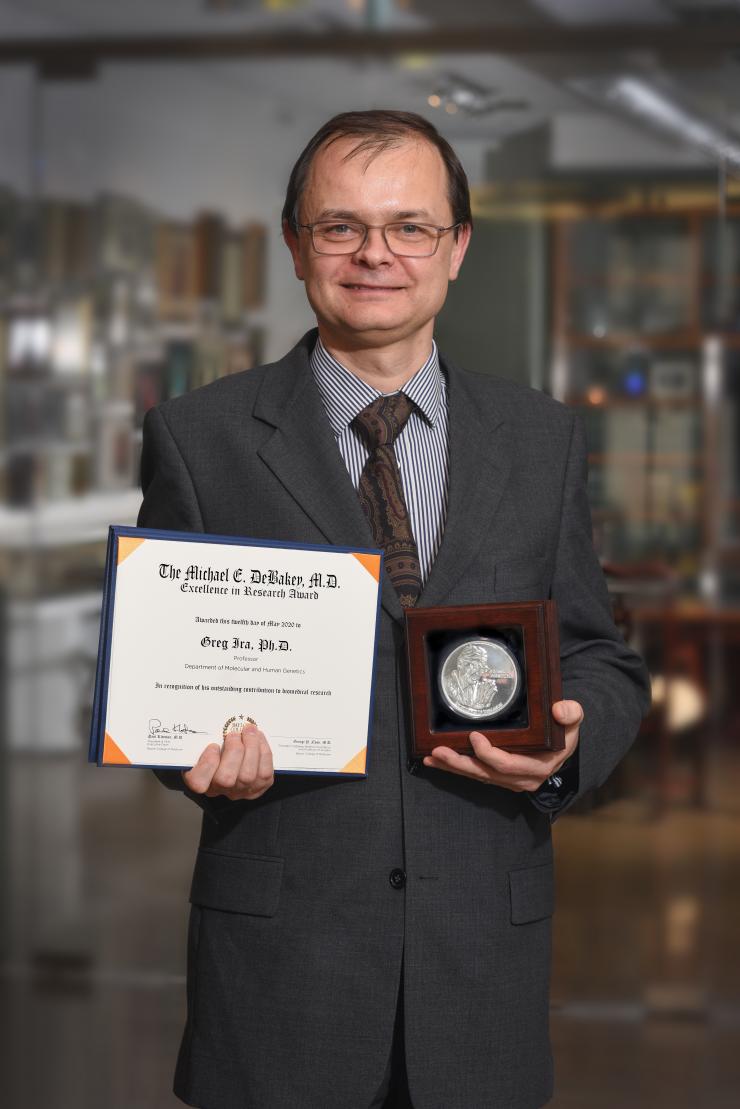2020 Recipient

Area: Molecular and Human Genetics
Dr. Greg Ira is professor of molecular and human genetics and a member of the Dan L Duncan Comprehensive Cancer Center at Baylor. He has earned recognition in the fields of DNA repair and recombination for his novel insights into basic molecular mechanisms linked to development and homeostasis and their implications for cancer and its treatment.
In the field of cancer biology, Dr. Ira’s work published in Oncogenesis (2017) suggests novel strategies to optimize cancer therapy. His lab conducted a screen to identify inhibitors of a DNA nuclease that is highly overexpressed in most cancers and has high potential as therapeutic target in this disease. The specific nuclease inhibitor Dr.Ira’s lab identified is successfully being used by many other laboratories and offers promising applications for cancer therapy.
In his 2018 paper published in Nature, Dr. Ira revealed a novel mechanism that increases our understanding of basic DNA biology. He showed that pieces of DNA from one chromosome,when not properly degraded,often end up being inserted into another chromosome. He reported the first mutant,yeast lacking the DNA-degrading enzyme called Dna2, in which any piece of one chromosome can jump to another chromosome. Similar DNA insertions are common in cancer genomes,in processes essential to generate diverse antibodies and likely contribute to the evolution of genes and chromosomes.
In the field of DNA recombination, Dr. Ira discovered a new function for the protein called Rad52. He showed that Rad52 binds to DNA and that this limits the unwinding of doble-stranded DNA and degradation of 5’strands during initial steps of homologous recombination,an important process in cell division. His finding also reveals how cells regulate the degradation of 5’DNA strands to maintain genome stability. This work was published in Molecular Cell in 2019.
DeBakey Award Nominations
Baylor College of Medicine faculty members are invited to nominate colleagues for Michael E. DeBakey, M.D., Excellence in Research Awards. Learn more.








